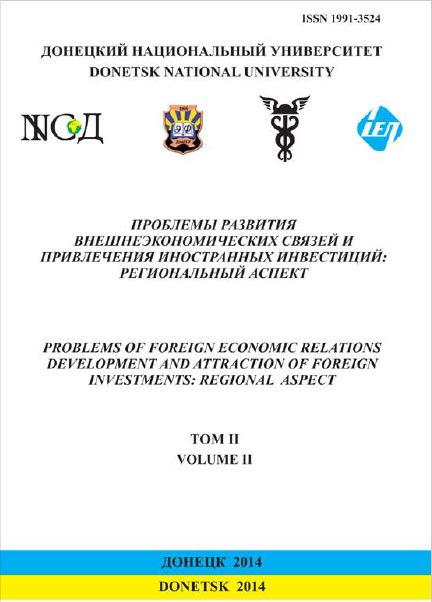Роль науково -технічної політики для підтримки економічного зростання та розвитку в Південній Кореї
Ключові слова:
науково-технологічна та інноваційна політика, промислова політика, економічне зростання, реформи, Південна КореяАнотація
Одні експерти стверджують , що держава не в змозі приймати ефективні рішення про те , в які технології потрібно інвестувати для забезпечення економічного зростання та розвитку. Інші стверджують , що багато сучасних інновацій було розроблено або отримали широке поширення в результаті конкретних заходів уряду. У статті аналізуються чинники державної політики , які призвели до «корейського економічного дива», і як політика Кореї відрізнялася від політики інших країн, що розвиваються . Ця стаття складається з вступу і трьох частин: перший розділ пояснює інституційне середовище для втручання корейського уряду у вітчизняну промисловість і ринкову середовище; другий розділ досліджує різницю між корейською державною політикою і політикою інших країн , після чого будуть зроблені висновки в останньому розділі.Посилання
Yoo, Jung-ho, 1990. The industrial policy of the 1970s and the Evolution of the Manufacturing Sector in Korea, Korea Development Institute Working paper No. 9017. Korea Development Institute, Seoul.
Young, Soogil, 1988. Trade Policy Problems in the Republic of Korea and Their Implications for Korea-US Cooperation, Korea Development Institute Working Paper No. 8821, Korea Development Institute, Seoul.
Young, Soogil, 1989. Trade Policy Problems of the Republic of Korea and The Uruguay Round, Korea Development Institute Working Paper No. 891, Korea Development Institute, Seoul.
Rhee, Sungsup, 1987. Policy Reform of the Eighties and Industrial Adjustment in the Korean Economy, Korea Development Institute Working paper No. 8708, Korea Development Institute, Seoul.
World Bank 1988. World Development Report 1988, New York, Oxford University Press. Ha-Joon, Chang, 1993. The political economy of industrial policy in Korea, Cambridge Journal of Economics, 1993, 17, 131-157.
Radosevic, S. (2012) Innovation Policy Studies Between Theory and Practice: A Literature Review Based analysis, STI policy review, STEPI.
Available¬from: http://www.stepi.re.kr/app/publish/view.jsp?cmsCd=CM0023&categCd=A0506&ntNo=9&sort =PUBDATE&sdt=&edt=&src=&srcTemp=&opt=N&currtPg=1 [Accessed: 6 Jan 2013] Dornbusch, R., and Y. C. Park. (1987). "Korea Growth Policy." Brookings Papers on Economic Activity 2,389 444.
Jong-Wha, Lee (1996), Government Interventions and Productivity Growth, Journal of Economic Growth, 1: 391-414.
SM Collins, WA Park (1988), External debt and macroeconomic performance in South Korea, Working Paper No. 2596, NATIONAL BUREAU OF ECONOMIC RESEARCH
Balassa, B. 1988. The lessons of East Asian development: an overview, Economic Development and Cultural Change, vol. 36, no. 3, Apr. 1988, Supplement
Kim, K. S. (1988). Economic Effects of lmport Liberalization and Industry Adjustment Policies (in Korean).Seonl: Korea Development Institute. Collins, S. M., and W. A. Park. (1989). "External Debt and Macroeconomic Performance in South Korea" In J. Sachs and S. Collins (eds.), Developing Country Debt and Economic Performance. Chicago: University of Chicago Press
Kwack, T. W. (1985). Depreciation System and Capital Gain Tax (in Korean). Seoul: Korea Development Institute.
Lee, S. H. 1985. Gookka, Kyegup mit jabon chookjok (The state, classes and capital accumulation), in Choi, J. J. (ed.), Hangook Jabonjui wa Gookka (Korean Capitalism and the State), Seoul, Han wool
Byun, B.-M. and B-H. Ahn, 1989. Growth of the Korean semiconductor industry and its competitive strategy in the world market, Technovation 9(8), 635-655.

